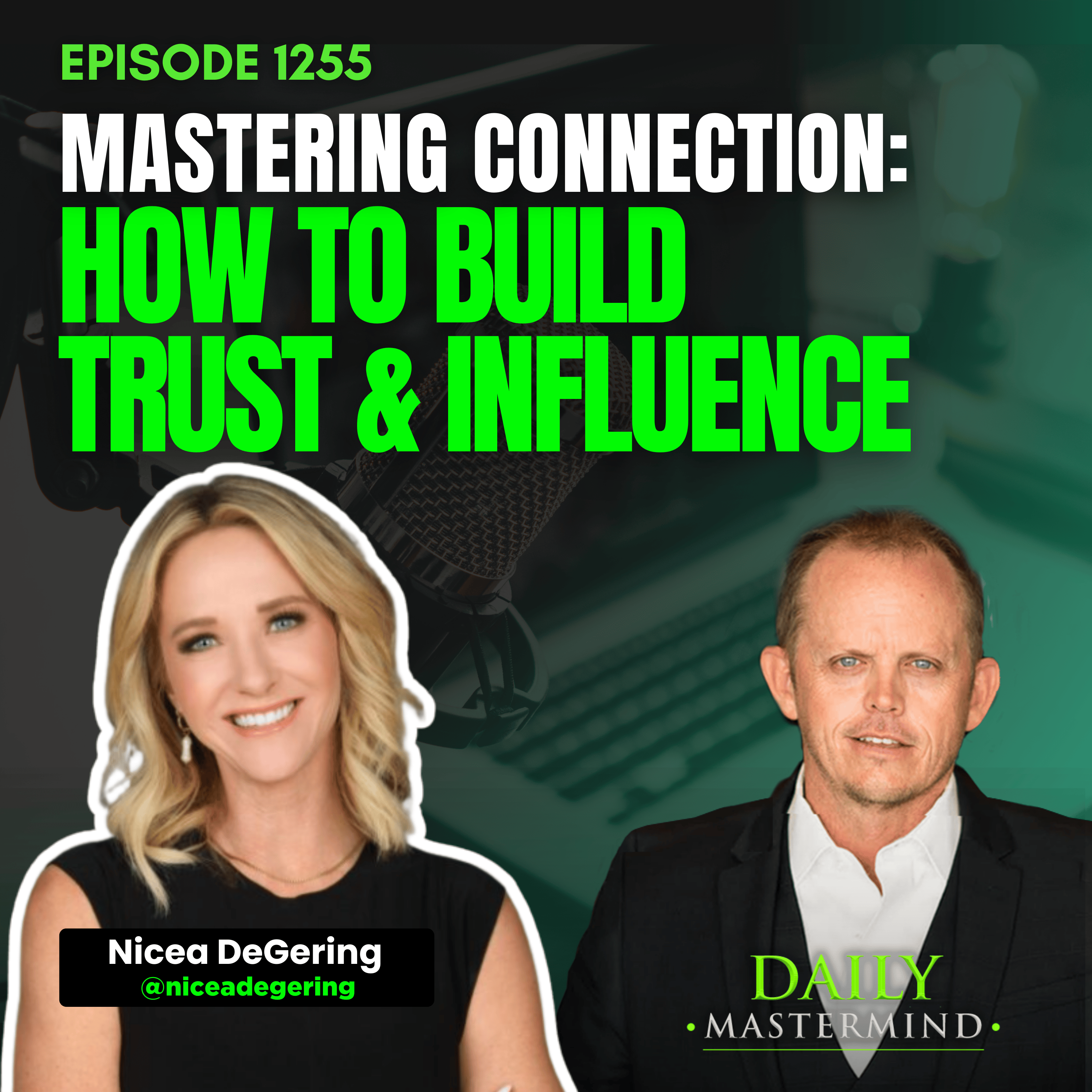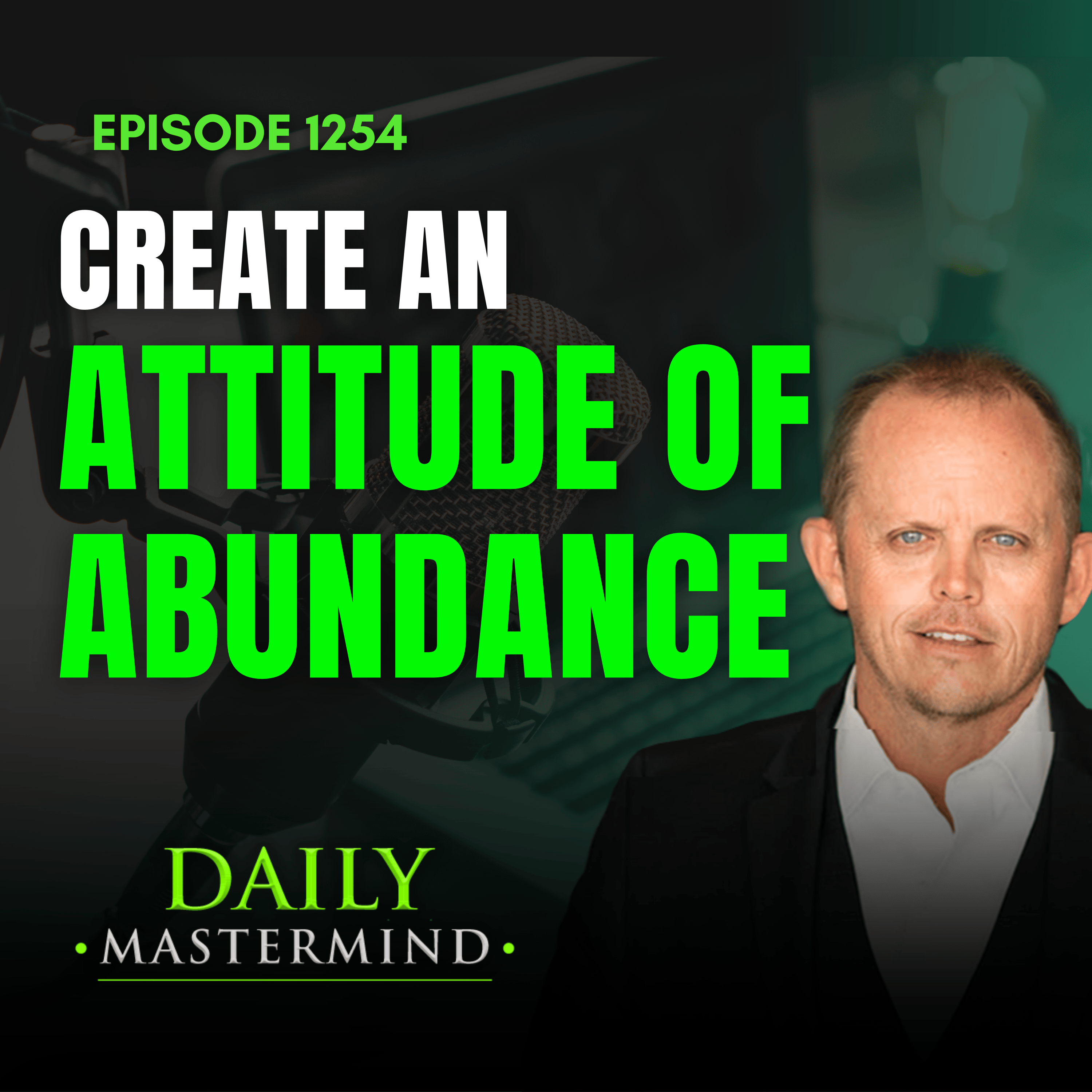
The Power of Now from Eckart Tolle (Part 2)
Being present isn’t just a mindset—it’s a practice. In The Power of Now, Eckhart Tolle teaches us how to become silent observers of our thoughts, let go of psychological time, and shift our focus to what truly matters. In Part 2 of our series, we’ll explore practical ways to access the power of the present moment and free ourselves from stress and overwhelm.
The Power of Now from Eckart Tolle(Part 2)
Welcome back to The Daily Mastermind. I’m George Wright III, and this is your daily dose of inspiration, motivation, and education. Today, we continue our exploration of Eckhart Tolle’s The Power of Now with Day 2, Part 2 of our three-part series. This book has profoundly influenced my perspective, and I find myself returning to it time and again. The insights within are not only transformative but also essential for anyone looking to improve their life through mindfulness and presence.
In our previous discussion, we explored the fundamental principles from the chapter Moving Deeply into the Now. We covered key ideas, such as recognizing that you are not your mind, ending the illusion of time, and understanding that nothing exists outside the present moment. These concepts lay the foundation for today’s focus: how to truly access the power of now and make it an integral part of your daily life.
The Practice of Presence
Tolle emphasizes that most people spend the majority of their time consumed by thoughts of the past or anxieties about the future. Regret, nostalgia, and over-identification with past experiences prevent growth, while stress and excessive planning create unnecessary worry about the future. The solution lies in mindfulness—training the mind to remain anchored in the present moment.
Meditation is one of the most effective ways to cultivate mindfulness. Personally, I find apps like Waking Up by Sam Harris and Calm to be valuable tools in establishing a consistent practice. Whether you prefer guided or unguided meditation, the goal is the same: to develop an awareness of what is happening in the present, both internally and externally. The more you practice, the more you realize that most problems, fears, and negative emotions stem from being trapped in either the past or the future. In the present moment, those problems often don’t exist at all.
Becoming the Silent Observer
One of the most powerful concepts from The Power of Now is the idea of becoming the silent watcher of your mind. Instead of reacting emotionally to thoughts and feelings, you learn to observe them without judgment. When negative emotions arise, instead of criticizing yourself, simply acknowledge them without attaching to them.
Tolle explains that when people feel threatened—whether by fear, a bruised ego, or past trauma—they often react unconsciously. They become defensive, say things they regret, or lash out. However, these reactions are not their true selves; they are conditioned responses of the mind. By observing thoughts rather than engaging with them, you strip them of their power.
If you resist negative thoughts, they persist. But if you observe them with detachment, they dissolve. This shift in perspective creates a profound sense of freedom and clarity, allowing you to engage with life without being held hostage by your mind’s habitual patterns.
Understanding Time: Clock Time vs. Psychological Time
A critical distinction in Tolle’s teachings is the difference between clock time and psychological time. Clock time is practical—it allows us to schedule meetings, set deadlines, and plan effectively. Psychological time, on the other hand, is what traps us in past regrets or future anxieties.
If you make a mistake and learn from it, you’re using clock time. But if you dwell on that mistake, replay it in your mind, and feel guilt over it, you are stuck in psychological time. Similarly, setting a goal and working toward it is a constructive use of clock time, while obsessing over achieving that goal and feeling anxious about the outcome is an example of psychological time.
Mastering this distinction allows you to operate efficiently in the present without being burdened by the past or fearful of the future. The key is to utilize clock time while minimizing psychological time.
Breaking Free from Negative Emotions
Most stress, suffering, and fear are tied to time. Regret, guilt, and resentment stem from dwelling on the past, while anxiety, overwhelm, and stress arise from worrying about the future. But in the exact present moment, these emotions hold no real power—our minds simply create them.
Rather than identifying with emotions, observe them. Instead of saying, I am stressed, shift to I notice that stress is present. This simple reframing creates space between you and the emotion, allowing it to dissipate naturally. Emotions are temporary by nature; they only persist when we hold onto them. By shifting focus back to the present, we free ourselves from unnecessary emotional burdens.
Living Your Life vs. Living Your Situation
Tolle draws a crucial distinction between living your life and living your situation. Many people believe that happiness is conditional upon external circumstances—a higher income, better relationships, or career success. However, circumstances are always changing. If happiness is tied to them, it will always be fleeting.
True fulfillment comes from being present and engaged, regardless of external factors. Rather than waiting for conditions to improve before allowing yourself to feel happy or successful, cultivate a deep connection with the present moment. When you stop resisting your current reality and embrace what is, life flows more effortlessly.
Creating a Quantum Leap in Results
One of the most valuable lessons from The Power of Now is that results don’t come from overthinking, worrying, or excessive planning. They come from being fully immersed in the present moment. Success is not achieved by waiting for the perfect moment—it comes from taking action now.
Being fully engaged in whatever you are doing—whether work, relationships, or personal growth—eliminates distractions, stress, and self-doubt. Instead of becoming fixated on outcomes, trust the process. Ironically, when you let go of expectations and focus on being present, you perform at your best.
Final Thoughts: What’s Next?
Tomorrow, we will conclude this series by exploring how to eliminate suffering through mastering presence, how to break free from the need for validation, and how to cultivate a success mindset rooted in the now. These are life-changing principles that, when applied, create profound shifts in perspective and productivity.
I’d love to hear your thoughts—does this resonate with you? Connect with me on Facebook or Instagram (@TheDailyMastermind) and let me know what’s clicking for you.
Thank you for being here. Stay present, keep moving forward, and I’ll see you in the next episode.

About George Wright III:
George Wright is a Proven, Successful Entrepreneur- and he knows how to inspire entrepreneurs, companies, and individuals to achieve Massive Results. With more than 20 years of Executive Management experience and 25 years of Direct Marketing and Sales experience, George is responsible for starting and building several successful multimillion-dollar companies. He started at a very young age to network and build his experience and knowledge of what it takes to become a driven and well-known entrepreneur. George built a multi-million-dollar seminar business, promoting some of the biggest stars and brands in the world. He has accelerated the success and cash flow in each of his ventures through his network of resources and results driven strategies. George is now dedicated to teaching and sharing his Prosperity Principles and Strategies to every Driven and Passionate Entrepreneur he meets. His mission is to Empower Entrepreneurs Globally to create Massive Change and LIVE their Ultimate Destiny.
Get to know me:
1. Subscribe to The Daily Mastermind Podcast- daily inspiration, motivation, education
2. Follow me on social media Facebook | Instagram | LinkedIn | TikTok | YouTube
3. Get the Prosperity Pillars Poster I Developed over 20 years from my Mentors.

.png)
.png)

